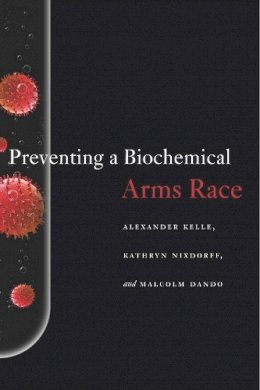
Preventing a Biochemical Arms Race
Kelle, Alexander; Nixdorff, Kathryn; Dando, Malcolm R.
Preventing a Biochemical Arms Race responds to a growing concern that changes in the life sciences and the nature of warfare could lead to a resurgent interest in chemical and biological weapons (CBW) capabilities. By bringing together a wide range of historical material and current literature in the field of CBW arms control, the book reveals how these two disparate fields might be integrated to precipitate a biochemical arms race among major powers, rogue states, or even non-state actors.
It seeks to raise awareness among policy practitioners, the academic community, and the media that such an arms race may be looming if developments are left unattended, and to provide policy options on how it—and it's devastating consequences—could be avoided. After identifying weaknesses in the international regime structures revolving around the Biological Weapons and Chemical Weapons Conventions, it provides policy proposals to deal with gaps and shortcomings in each prohibition regime individually, and then addresses the widening gap between them.
Product Details
About Kelle, Alexander; Nixdorff, Kathryn; Dando, Malcolm R.
Reviews for Preventing a Biochemical Arms Race
